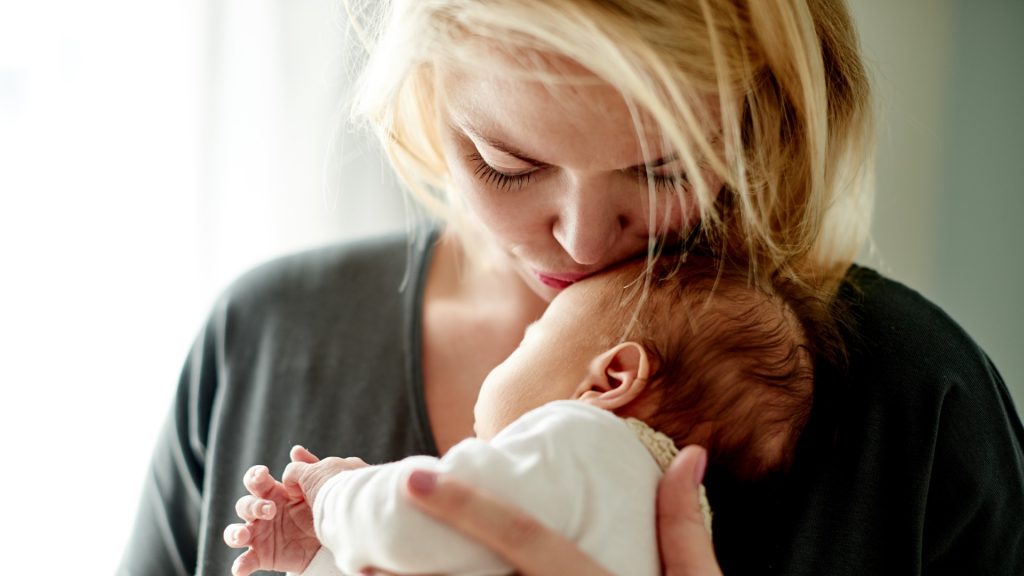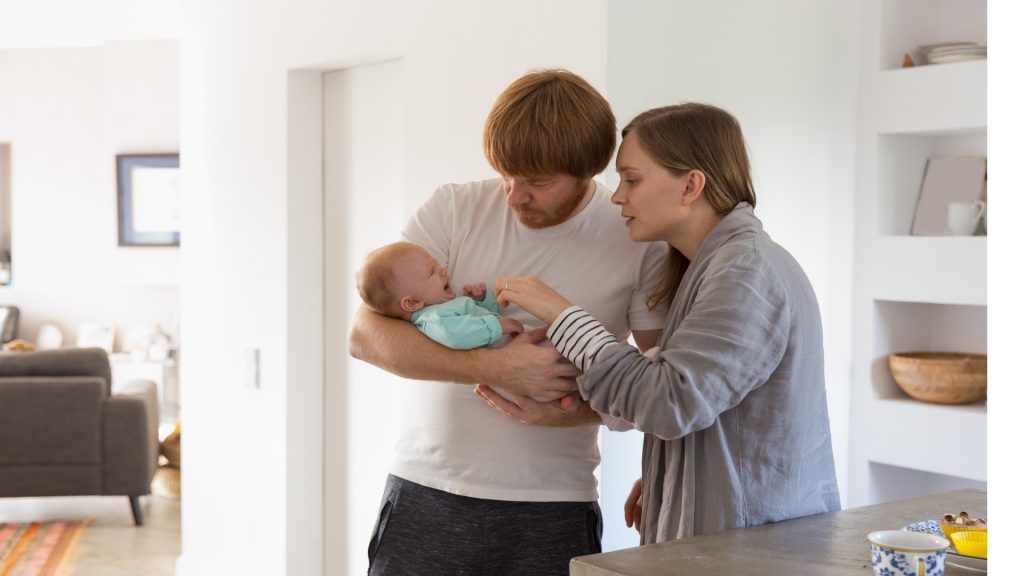Whether you’re a first-time parent or are welcoming a new family addition, having a baby transforms every aspect of your life — physically, mentally, and emotionally. Though this is exciting, it can seem overwhelming during the first few weeks after giving birth.
During this time, known as the ‘postpartum’ period, you’re adjusting to having this new tiny human to look after. So if there are things you find tricky or confusing, that’s okay! One big thing to remember is that you’re not alone. There’s lots of support available during the postpartum recovery phase.
What is postpartum?
Often, the term ‘postpartum’ seems to go hand in hand with ‘depression,’ which might seem a scary prospect. But, although some new parents experience postpartum depression, ‘postpartum’ itself ultimately just means the time following childbirth.
Generally, when people talk about the postpartum period or ‘fourth trimester’, they are referring to the first 6-12 weeks after giving birth. Although of course, every parent’s postpartum recovery timeline is different.
Sometimes, it can feel as if there’s pressure to be ‘back to normal’ within a couple of weeks. But taking the focus off the timeframe and placing it on yours and your family’s individual needs can help you relax and recover more quickly.

Physical effects
Pregnancy and childbirth bring about huge physical impacts and it can take time to adapt to the changes in your postpartum body. From healing perineum tears and soothing tender breasts to managing fatigue, you may have a few extra things on your self-care radar.
That’s why, during the fourth trimester, it can be helpful to get advice from nutritionists, massage therapists, or acupuncturists. Looking after your postpartum body can help you feel healthier and happier all round.
Many new mothers face challenges around their postpartum body image. But remember, you’ve housed a life for nine months — that’s pretty incredible! It’s up to each individual whether and when they start exercising. However, it’s safest to always check with your midwife before embarking on any postpartum fitness exercises. Alongside physical exercise, you might find that focusing on postpartum nutrition and eating a varied, balanced diet can help you feel healthier and stronger.
What about my periods?
You may be wondering how soon after giving birth you’ll get your menstrual period. After nine months without, you might be dreading its return, or you might be relieved to see it back again!
As with postpartum recovery, everyone has a unique timeline. If you’re not breastfeeding, you’re likely to get your first postpartum period around 6-8 weeks after childbirth. If you are breastfeeding, it can take a bit longer.
Whenever you do get your first postpartum period, you may notice it’s a bit different from your menstrual cycles before getting pregnant. Your cycle may be more irregular, with stops and starts. You may also find you get stronger or lighter cramps than before.
All these differences are normal. However, if you experience particularly heavy bleeding or painful cramps, you might like to check in with your doctor.
How do I know if I have postpartum depression?
Postpartum depression (postnatal depression) affects more than one in 10 new mothers.
Following childbirth, many people may experience the ‘baby blues’. Those pesky postpartum hormones are changing again, and they can bring emotional ups and downs in the days after birth. You might find yourself feeling sad and anxious and questioning… well, everything! Am I doing this right? Why won’t my baby sleep? Should I be breastfeeding? How on Earth do mothers do this?
For most people, postpartum blues begin in the first three days after birth and only last a week or two. 60-80% of new mothers are affected by baby blues.
However, if you find yourself feeling persistently low or sad and are finding it hard to bond with your baby for more than two weeks after giving birth, it might be best to see your doctor to talk about the possibility of postpartum depression (PPD).
Other symptoms of postpartum depression include:
- Loss of interest in things you once enjoyed
- Fatigue and trouble sleeping
- Feeling unable to take care of your baby
- Loss of concentration
- Appetite changes
- Feeling irritable or apathetic
- Feeling guilty and hopeless
- Frightening or harmful thoughts
If you find yourself struggling, your doctor will be able to support you. This may be via self-help, therapy, or medication, depending on your circumstances.
Support networks
During postpartum recovery, you may find it helpful to try and get out to see friends and family. Whether that’s going for a coffee with loved ones, or attending baby yoga classes where you can meet other new parents and share your experiences, socialising can help keep feelings of loneliness at bay.
You might find it a change of pace being at home with your baby for most of the day, and establishing strong support networks can help ensure you don’t feel too isolated.
Postpartum for all the family
It’s not just women who have recently given birth who can experience postpartum. Fathers and partners can also struggle during the fourth trimester and benefit from support, as can adoptive parents.

Having a baby changes family dynamics. Whilst this can be a beautiful thing — if you have other children too, they might love having a baby sibling — adapting to the new addition in the home can take time.
For many families, parenting is a collaborative process. ‘Teamwork makes the dream work,’ as they say, and, whatever your circumstances, taking each person’s needs into account can make the postpartum journey run more smoothly. Some new parents find it helpful to speak to a family coach who can support them in cultivating a parenting style that works for them and balancing household dynamics.
The fourth trimester can be a challenging time for new parents. However, it’s also a very special few weeks, filled with love, where you can embrace building a bond with your baby. Whatever ups and downs you may face, try and remember that it’s always okay to ask for help when needed.
From parental coaching to postpartum massage and nutrition, wellbeing support services are at your fingertips.
Interested in reading more articles? Discover how acupuncture can help during pregnancy, read here!






[…] Related article: let’s talk about postpartum! […]